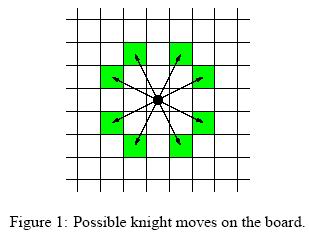- 顺序表,链表,栈
于冬恋
链表算法数据结构
(1)顺序表1.顺序表的定义:【1】.静态分配(大小固定,无法改变)#include#include#definemax10usingnamespacestd;typedefstruct{intdate[max];intlenth;}seqlist;voidinitlist(seqlist&L){for(inti=0;i#include#defineinitsize10usingnamespace
- 【vue】Mammoth.js的使用:将.docx转换成HTML
暴富暴富暴富啦啦啦
1024程序员节
mammoth.convertToHtml(input,options):把源文档转换为HTML文档mammoth.convertToMarkdown(input,options):把源文档转换为Markdown文档。mammoth.extractRawText(input):提取文档的原始文本。这将忽略文档中的所有格式。每个段落后跟两个换行符。npminstallelement-uimammot
- 位图(BitMap)实现
小猫猫猫◍˃ᵕ˂◍
bitmap算法
位图(BitMap)实现1.位图简介位图(BitMap)是一种高效的数据结构,用于存储和操作位(bit)数据。每个位可以表示一个布尔值(0或1),常用于去重、排序、快速查找等场景。2.核心功能⚙️设置位(Set):将某一位设置为1。清除位(Clear):将某一位设置为0。获取位(Get):检查某一位是否为1。打印位图(Print):以二进制形式打印位图。3.代码实现packageMyStruct;
- 【HarmonyOS NEXT】是否有监听键盘显隐的方法
Mayism123
harmonyos
关键字监听/键盘/输入法框架/窗口问题描述是否有监听键盘显隐的方法?解决方案可选择以下任一方案:方案一:通过输入法框架模块(@ohos.inputMethod)来监听软键盘状态。用InputMethodController实例的on('sendKeyboardStatus')方法来监听,直接在inputMethodController.on('sendKeyboardStatus',callbac
- 如何使用零配置的Sphinx生成Python文档?
潮易
sphinx全文检索搜索引擎
如何使用零配置的Sphinx生成Python文档?在Python编程中,编写文档是非常重要的。一个好的文档可以帮助其他开发者理解和使用你的代码。Sphinx是一个用于生成Python项目的文档的静态网页生成器,它支持多种文档格式,包括ReStructuredText和Markdown。以下是使用零配置的方式来使用Sphinx生成Python文档的详细步骤:1.首先,确保你已经安装了Sphinx。打
- C++ Primer Plus chapter 18
狗头鹰
c++windows开发语言
exercies1考察std::initializer_list并不相同#include#include#includedoublesum(std::initializer_listi){doubletot=0;std::for_each(i.begin(),i.end(),[&tot](doubledb){tot+=db;});returntot;}templateTaverage_list(c
- C++ C_style string overview and basic Input funcitons
狗头鹰
C++notesc++开发语言
writeinadvance最近在做题,遇到一个简单的将console的输入输出到文件中的简单题目,没有写出来。悔恨当初没有踏实地总结string相关的I/O以及与文件的操作。这篇文章旨在记录基础的字符I/O,简单常用的文件I/O操作函数。当然,你会说C++已经有一个stringclass,我们只需要#include就能够使用它带来的便捷性及强大的功能,无需烦恼细节。但知道底层的具体情况在语言的学
- 【干货】视频文件抽帧(opencv和ffmpeg方式对比)
zkFun
超硬干货Pythonopencvffmpeg人工智能
1废话不多说,直接上代码opencv方式importtimeimportsubprocessimportcv2,osfrommathimportceildefextract_frames_opencv(video_path,output_folder,frame_rate=1):"""使用OpenCV从视频中抽取每秒指定帧数的帧,并保存到指定文件夹。如果视频长度不是整数秒,则会在最后一帧时补充空白
- 使用python计算等比数列求和的方法
HAMYHF
windows
在python中,计算Sum=m+mm+mmm+mmmm+.....+mmmmm.....,输入两个数m,n。m的位数累加到n的值,列出算式并计算出结果:#为了打印出算式,并计算出结果,将m,mm这些放入到列表中#定义列表中的m初始值为0,用Ele来代表m,mm....Ele=0#定义总和为0Sum=0#定义一个空列表List=[]#输入两个值n=int(input("inputadigit:")
- Rust 中使用 :: 这种语法的几种情况
yujunlong3919
rustrust区块链
文章目录1.访问模块成员:2.访问关联函数或静态方法:3.访问trait的关联类型或关联常量4.指定泛型类型参数1.访问模块成员:modutils{pubfndo_something(){/*...*/}}letresult=utils::do_something();2.访问关联函数或静态方法:structMyStruct;implMyStruct{fnnew()->Self{MyStruct}
- Python's SQLAlchemy and Object-Relational Mapping
zhanglizhuo
Python
Acommontaskwhenprogramminganywebserviceistheconstructionofasoliddatabasebackend.Inthepast,programmerswouldwriterawSQLstatements,passthemtothedatabaseengineandparsethereturnedresultsasanormalarrayofrec
- MapReduce 读取 Hive ORC ArrayIndexOutOfBoundsException: 1024 异常解决
一张假钞
mapreducehive大数据
个人博客地址:MapReduce读取HiveORCArrayIndexOutOfBoundsException:1024异常解决|一张假钞的真实世界在MR处理ORC的时候遇到如下异常:Exceptioninthread"main"java.lang.ArrayIndexOutOfBoundsException:1024atorg.apache.orc.impl.RunLengthIntegerRe
- python调用接口返回401,带有Python的Jira API在有效凭据上返回错误401
weixin_39743369
python调用接口返回401
IamtryingtousetheJirapythonlibrarytodosomequitebasicthings.Evenbeforedoinganything,theconstructorfails.address='https://myaddress.atlassian.net'options={'server':address}un='
[email protected]'#un='my'#alsod
- 【CVPR 2021】Knowledge Review:知识蒸馏新解法
BIT可达鸭
深度学习人工智能计算机视觉模型压缩知识蒸馏
【CVPR2021】KnowledgeReview:知识蒸馏新解法论文地址:主要问题:主要思路:符号假设:具体实现:实验结果:关注我的公众号:联系作者:论文地址:https://jiaya.me/papers/kdreview_cvpr21.pdf主要问题:目前大部分关于KD的方法都是基于相同层或者相同Block之间的知识迁移。但是Teacher往往深层表示抽象的语义信息,底层表示简单的知识的信息
- Java集合之ArrayList(含源码解析 超详细)
&星辰入梦来&
Java集合javapython开发语言
1.ArrayList简介ArrayList的底层是数组队列,相当于动态数组。与Java中的数组相比,它的容量能动态增长。在添加大量元素前,应用程序可以使用ensureCapacity操作来增加ArrayList实例的容量。这可以减少递增式再分配的数量。ArrayList继承于AbstructList,实现了List,RandomAccess,Cloneable,Java.io.Serializa
- (4)UART应用设计及仿真验证4 —— UART模块集成
少卿不在大理寺
数字IC设计从入门到实战uartIC设计verilogIC
四、模块集成1.UART模块集成这会儿你再来看这个uart模块构是不是就亲切了很多,归总一下TX和RX之后,我们发现整个的UART的模块输入输出都是定好了的。所以在结构上没有什么需要再分析和拆解了的。直接上代码:moduleuart(inputclk,inputrstn,inputrx,inputtx_data,inputtx_data_valid,outputtx,outputtx_ready,
- 训练与优化
钰见梵星
小土堆PyTorch深度学习深度学习pytorch人工智能
训练与优化损失函数与反向传播损失函数能够衡量神经网络输出与目标值之间的误差,同时为反向传播提供依据,计算梯度来优化网络中的参数。torch.nn.L1Loss计算所有预测值与真实值之间的绝对差。参数为reduction:'none':不对损失进行任何求和或平均,返回每个元素的损失。'mean':对损失进行平均,默认选项。'sum':对所有样本的损失进行求和。importtorchinput=tor
- Pytorch实现之利用特征分布的差异来指导GAN的训练
这张生成的图像能检测吗
优质GAN模型训练自己的数据集GAN系列pytorch生成对抗网络人工智能神经网络深度学习计算机视觉机器学习
简介简介:FIDGAN通过将FID损失引入GAN的训练过程,显著提升了生成图像的质量。其核心思想是利用特征分布的差异来指导生成器的训练,同时通过使用轻量级的MobileNet-v3提高了计算效率。这种方法在图像生成任务中具有广泛的应用前景。论文题目:FIDGAN:AGenerativeAdversarialNetworkwithAnInceptionDistance(FIDGAN:具有初始距离的生
- STM32硬件SPI函数解析与示例
weixin_58038206
stm32嵌入式硬件单片机
1.SPI简介SPI(SerialPeripheralInterface)即串行外设接口,是一种高速、全双工、同步的通信总线,常用于微控制器与各种外设(如传感器、存储器等)之间的通信。STM32系列微控制器提供了多个SPI接口,具有灵活的配置选项。2.相关函数解析2.1初始化相关函数SPI_Init(SPI_TypeDef*SPIx,SPI_InitTypeDef*SPI_InitStruct)功
- 函数式编程倡导的「不可变数据结构」如何保证性能
编程
在函数式编程(FunctionalProgramming,简称FP)中,不可变数据结构(ImmutableDataStructures)是一个核心概念。与传统的可变数据结构相比,不可变数据结构不可修改,而是通过创建新的数据结构来表达数据的变更。这一特点使得函数式编程能够简化并行计算、避免副作用,进而提高程序的可靠性和可维护性。然而,不可变数据结构可能带来的性能问题,例如内存的使用、数据复制的成本等
- HarmonyOS组件之Tabs
秃顶老男孩.
harmonyos华为ui
Tabs1.1概念Tabs视图切换容器,通过相适应的页签进行视图页面的切换的容器组件每一个页签对应一个内容视图Tabs拥有一种唯一的子集元素TabContent1.2子组件不支持自定义组件为子组件,仅可包含子组件TabContent,以及渲染控制类型if/else和ForEach并且if/else和ForEach下页仅支持TabContent,不支持自定义组件1.2.1TabContent有几个页
- python中的Pillow 有哪些常用的功能?
大懒猫软件
pillow计算机视觉人工智能python
Pillow的常用功能Pillow是一个强大的图像处理库,提供了丰富的功能来处理和操作图像。以下是一些常用的功能及其示例代码:1.打开和保存图像Pillow可以轻松地打开和保存各种格式的图像文件。示例代码Python复制fromPILimportImage#打开图像img=Image.open("example.jpg")#显示图像img.show()#保存图像img.save("output.j
- TotalSegmentator 安装和配置指南
江望珣Vaughan
TotalSegmentator安装和配置指南TotalSegmentatorToolforrobustsegmentationof>100importantanatomicalstructuresinCTimages项目地址:https://gitcode.com/gh_mirrors/to/TotalSegmentator1.项目基础介绍和主要编程语言项目介绍TotalSegmentator是
- TotalSegmentator:一站式医学影像分割工具
柯江同
TotalSegmentator:一站式医学影像分割工具TotalSegmentatorToolforrobustsegmentationof>100importantanatomicalstructuresinCTimages项目地址:https://gitcode.com/gh_mirrors/to/TotalSegmentator项目基础介绍及编程语言TotalSegmentator是一个强
- ️ 总览:TotalSegmentator - 医学影像分割的革新者
金斐茉
️总览:TotalSegmentator-医学影像分割的革新者TotalSegmentatorToolforrobustsegmentationof>100importantanatomicalstructuresinCTimages项目地址:https://gitcode.com/gh_mirrors/to/TotalSegmentator在医学图像处理领域中,精确且高效的自动分割工具对于研究和
- IPoIB 接收数据流程分析
109702008
编程#C语言网络人工智能linux网络
1.引言IPoIB(InfiniBandoverIP)是一种将InfiniBand协议封装在IP网络中的技术,允许通过标准的以太网基础设施传输InfiniBand数据。本文将详细分析IPoIB驱动程序中接收数据的处理流程,重点关注关键函数的实现和数据处理的关键步骤。2.网络设备操作结构体staticconststructnet_device_opsipoib_netdev_default_pf_r
- python环境的yolov11.rknn物体检测
子正
问题建模#AI自由行部署YOLO机器学习运维
1.首先是我手里生成的一个yolo11的.rknn模型:2.比对一下yolov5的模型:2.1yolov5模型的后期处理:outputs=rknn.inference(inputs=[img2],data_format=['nhwc'])np.save('./onnx_yolov5_0.npy',outputs[0])np.save('./onnx_yolov5_1.npy',outputs[1]
- 自然语言处理NLP 01语言转换&语言模型
伊一大数据&人工智能学习日志
自然语言处理自然语言处理人工智能语言模型nlp机器学习深度学习
目录语言转化方式1.数据预处理(DataPreprocessing)(1)文本清理(2)分词(3)语言特殊处理2.特征提取(FeatureExtraction)(1)词袋模型(BagofWords,BoW)(2)TF-IDF(3)词嵌入(WordEmbedding)3.模型输入(ModelInput)(1)序列编码(2)预训练模型输入4.模型推理(ModelInference)(1)使用传统模型(
- 遍历HashMap,有6种方式,你学会了没?
程序员猫哥
pythonjava开发语言
在Java中,有多种方式可以遍历HashMap,下面为你详细介绍几种常见的遍历方法。1,使用keySet()遍历键,再通过键获取值创建一个HashMap对象,并向其中添加一些键值对。使用map.keySet()方法获取HashMap中所有键的集合。通过for-each循环遍历这个键的集合。在循环体中,使用map.get(key)方法根据当前键获取对应的值,并将键和值打印输出。packagecom.
- 结构体与位段
bbppooi
c语言学习c语言数据结构
结构体类型的声明结构是⼀些值的集合,这些值称为成员变量。结构的每个成员可以是不同类型的变量结构的声明structtag{member-list;}variable-list;例子structbook{chartitle[MAXTITL];//字符串类型的titilecharauthor[MAXAUTL];//字符串类型的authorfloatvalue;//浮点型的value};关于其声明的位置,
- 多线程编程之存钱与取钱
周凡杨
javathread多线程存钱取钱
生活费问题是这样的:学生每月都需要生活费,家长一次预存一段时间的生活费,家长和学生使用统一的一个帐号,在学生每次取帐号中一部分钱,直到帐号中没钱时 通知家长存钱,而家长看到帐户还有钱则不存钱,直到帐户没钱时才存钱。
问题分析:首先问题中有三个实体,学生、家长、银行账户,所以设计程序时就要设计三个类。其中银行账户只有一个,学生和家长操作的是同一个银行账户,学生的行为是
- java中数组与List相互转换的方法
征客丶
JavaScriptjavajsonp
1.List转换成为数组。(这里的List是实体是ArrayList)
调用ArrayList的toArray方法。
toArray
public T[] toArray(T[] a)返回一个按照正确的顺序包含此列表中所有元素的数组;返回数组的运行时类型就是指定数组的运行时类型。如果列表能放入指定的数组,则返回放入此列表元素的数组。否则,将根据指定数组的运行时类型和此列表的大小分
- Shell 流程控制
daizj
流程控制if elsewhilecaseshell
Shell 流程控制
和Java、PHP等语言不一样,sh的流程控制不可为空,如(以下为PHP流程控制写法):
<?php
if(isset($_GET["q"])){
search(q);}else{// 不做任何事情}
在sh/bash里可不能这么写,如果else分支没有语句执行,就不要写这个else,就像这样 if else if
if 语句语
- Linux服务器新手操作之二
周凡杨
Linux 简单 操作
1.利用关键字搜寻Man Pages man -k keyword 其中-k 是选项,keyword是要搜寻的关键字 如果现在想使用whoami命令,但是只记住了前3个字符who,就可以使用 man -k who来搜寻关键字who的man命令 [haself@HA5-DZ26 ~]$ man -k
- socket聊天室之服务器搭建
朱辉辉33
socket
因为我们做的是聊天室,所以会有多个客户端,每个客户端我们用一个线程去实现,通过搭建一个服务器来实现从每个客户端来读取信息和发送信息。
我们先写客户端的线程。
public class ChatSocket extends Thread{
Socket socket;
public ChatSocket(Socket socket){
this.sock
- 利用finereport建设保险公司决策分析系统的思路和方法
老A不折腾
finereport金融保险分析系统报表系统项目开发
决策分析系统呈现的是数据页面,也就是俗称的报表,报表与报表间、数据与数据间都按照一定的逻辑设定,是业务人员查看、分析数据的平台,更是辅助领导们运营决策的平台。底层数据决定上层分析,所以建设决策分析系统一般包括数据层处理(数据仓库建设)。
项目背景介绍
通常,保险公司信息化程度很高,基本上都有业务处理系统(像集团业务处理系统、老业务处理系统、个人代理人系统等)、数据服务系统(通过
- 始终要页面在ifream的最顶层
林鹤霄
index.jsp中有ifream,但是session消失后要让login.jsp始终显示到ifream的最顶层。。。始终没搞定,后来反复琢磨之后,得到了解决办法,在这儿给大家分享下。。
index.jsp--->主要是加了颜色的那一句
<html>
<iframe name="top" ></iframe>
<ifram
- MySQL binlog恢复数据
aigo
mysql
1,先确保my.ini已经配置了binlog:
# binlog
log_bin = D:/mysql-5.6.21-winx64/log/binlog/mysql-bin.log
log_bin_index = D:/mysql-5.6.21-winx64/log/binlog/mysql-bin.index
log_error = D:/mysql-5.6.21-win
- OCX打成CBA包并实现自动安装与自动升级
alxw4616
ocxcab
近来手上有个项目,需要使用ocx控件
(ocx是什么?
http://baike.baidu.com/view/393671.htm)
在生产过程中我遇到了如下问题.
1. 如何让 ocx 自动安装?
a) 如何签名?
b) 如何打包?
c) 如何安装到指定目录?
2.
- Hashmap队列和PriorityQueue队列的应用
百合不是茶
Hashmap队列PriorityQueue队列
HashMap队列已经是学过了的,但是最近在用的时候不是很熟悉,刚刚重新看以一次,
HashMap是K,v键 ,值
put()添加元素
//下面试HashMap去掉重复的
package com.hashMapandPriorityQueue;
import java.util.H
- JDK1.5 returnvalue实例
bijian1013
javathreadjava多线程returnvalue
Callable接口:
返回结果并且可能抛出异常的任务。实现者定义了一个不带任何参数的叫做 call 的方法。
Callable 接口类似于 Runnable,两者都是为那些其实例可能被另一个线程执行的类设计的。但是 Runnable 不会返回结果,并且无法抛出经过检查的异常。
ExecutorService接口方
- angularjs指令中动态编译的方法(适用于有异步请求的情况) 内嵌指令无效
bijian1013
JavaScriptAngularJS
在directive的link中有一个$http请求,当请求完成后根据返回的值动态做element.append('......');这个操作,能显示没问题,可问题是我动态组的HTML里面有ng-click,发现显示出来的内容根本不执行ng-click绑定的方法!
- 【Java范型二】Java范型详解之extend限定范型参数的类型
bit1129
extend
在第一篇中,定义范型类时,使用如下的方式:
public class Generics<M, S, N> {
//M,S,N是范型参数
}
这种方式定义的范型类有两个基本的问题:
1. 范型参数定义的实例字段,如private M m = null;由于M的类型在运行时才能确定,那么我们在类的方法中,无法使用m,这跟定义pri
- 【HBase十三】HBase知识点总结
bit1129
hbase
1. 数据从MemStore flush到磁盘的触发条件有哪些?
a.显式调用flush,比如flush 'mytable'
b.MemStore中的数据容量超过flush的指定容量,hbase.hregion.memstore.flush.size,默认值是64M 2. Region的构成是怎么样?
1个Region由若干个Store组成
- 服务器被DDOS攻击防御的SHELL脚本
ronin47
mkdir /root/bin
vi /root/bin/dropip.sh
#!/bin/bash/bin/netstat -na|grep ESTABLISHED|awk ‘{print $5}’|awk -F:‘{print $1}’|sort|uniq -c|sort -rn|head -10|grep -v -E ’192.168|127.0′|awk ‘{if($2!=null&a
- java程序员生存手册-craps 游戏-一个简单的游戏
bylijinnan
java
import java.util.Random;
public class CrapsGame {
/**
*
*一个简单的赌*博游戏,游戏规则如下:
*玩家掷两个骰子,点数为1到6,如果第一次点数和为7或11,则玩家胜,
*如果点数和为2、3或12,则玩家输,
*如果和为其它点数,则记录第一次的点数和,然后继续掷骰,直至点数和等于第一次掷出的点
- TOMCAT启动提示NB: JAVA_HOME should point to a JDK not a JRE解决
开窍的石头
JAVA_HOME
当tomcat是解压的时候,用eclipse启动正常,点击startup.bat的时候启动报错;
报错如下:
The JAVA_HOME environment variable is not defined correctly
This environment variable is needed to run this program
NB: JAVA_HOME shou
- [操作系统内核]操作系统与互联网
comsci
操作系统
我首先申明:我这里所说的问题并不是针对哪个厂商的,仅仅是描述我对操作系统技术的一些看法
操作系统是一种与硬件层关系非常密切的系统软件,按理说,这种系统软件应该是由设计CPU和硬件板卡的厂商开发的,和软件公司没有直接的关系,也就是说,操作系统应该由做硬件的厂商来设计和开发
- 富文本框ckeditor_4.4.7 文本框的简单使用 支持IE11
cuityang
富文本框
<html xmlns="http://www.w3.org/1999/xhtml">
<head>
<meta http-equiv="Content-Type" content="text/html; charset=UTF-8" />
<title>知识库内容编辑</tit
- Property null not found
darrenzhu
datagridFlexAdvancedpropery null
When you got error message like "Property null not found ***", try to fix it by the following way:
1)if you are using AdvancedDatagrid, make sure you only update the data in the data prov
- MySQl数据库字符串替换函数使用
dcj3sjt126com
mysql函数替换
需求:需要将数据表中一个字段的值里面的所有的 . 替换成 _
原来的数据是 site.title site.keywords ....
替换后要为 site_title site_keywords
使用的SQL语句如下:
updat
- mac上终端起动MySQL的方法
dcj3sjt126com
mysqlmac
首先去官网下载: http://www.mysql.com/downloads/
我下载了5.6.11的dmg然后安装,安装完成之后..如果要用终端去玩SQL.那么一开始要输入很长的:/usr/local/mysql/bin/mysql
这不方便啊,好想像windows下的cmd里面一样输入mysql -uroot -p1这样...上网查了下..可以实现滴.
打开终端,输入:
1
- Gson使用一(Gson)
eksliang
jsongson
转载请出自出处:http://eksliang.iteye.com/blog/2175401 一.概述
从结构上看Json,所有的数据(data)最终都可以分解成三种类型:
第一种类型是标量(scalar),也就是一个单独的字符串(string)或数字(numbers),比如"ickes"这个字符串。
第二种类型是序列(sequence),又叫做数组(array)
- android点滴4
gundumw100
android
Android 47个小知识
http://www.open-open.com/lib/view/open1422676091314.html
Android实用代码七段(一)
http://www.cnblogs.com/over140/archive/2012/09/26/2611999.html
http://www.cnblogs.com/over140/arch
- JavaWeb之JSP基本语法
ihuning
javaweb
目录
JSP模版元素
JSP表达式
JSP脚本片断
EL表达式
JSP注释
特殊字符序列的转义处理
如何查找JSP页面中的错误
JSP模版元素
JSP页面中的静态HTML内容称之为JSP模版元素,在静态的HTML内容之中可以嵌套JSP
- App Extension编程指南(iOS8/OS X v10.10)中文版
啸笑天
ext
当iOS 8.0和OS X v10.10发布后,一个全新的概念出现在我们眼前,那就是应用扩展。顾名思义,应用扩展允许开发者扩展应用的自定义功能和内容,能够让用户在使用其他app时使用该项功能。你可以开发一个应用扩展来执行某些特定的任务,用户使用该扩展后就可以在多个上下文环境中执行该任务。比如说,你提供了一个能让用户把内容分
- SQLServer实现无限级树结构
macroli
oraclesqlSQL Server
表结构如下:
数据库id path titlesort 排序 1 0 首页 0 2 0,1 新闻 1 3 0,2 JAVA 2 4 0,3 JSP 3 5 0,2,3 业界动态 2 6 0,2,3 国内新闻 1
创建一个存储过程来实现,如果要在页面上使用可以设置一个返回变量将至传过去
create procedure test
as
begin
decla
- Css居中div,Css居中img,Css居中文本,Css垂直居中div
qiaolevip
众观千象学习永无止境每天进步一点点css
/**********Css居中Div**********/
div.center {
width: 100px;
margin: 0 auto;
}
/**********Css居中img**********/
img.center {
display: block;
margin-left: auto;
margin-right: auto;
}
- Oracle 常用操作(实用)
吃猫的鱼
oracle
SQL>select text from all_source where owner=user and name=upper('&plsql_name');
SQL>select * from user_ind_columns where index_name=upper('&index_name'); 将表记录恢复到指定时间段以前
- iOS中使用RSA对数据进行加密解密
witcheryne
iosrsaiPhoneobjective c
RSA算法是一种非对称加密算法,常被用于加密数据传输.如果配合上数字摘要算法, 也可以用于文件签名.
本文将讨论如何在iOS中使用RSA传输加密数据. 本文环境
mac os
openssl-1.0.1j, openssl需要使用1.x版本, 推荐使用[homebrew](http://brew.sh/)安装.
Java 8
RSA基本原理
RS

